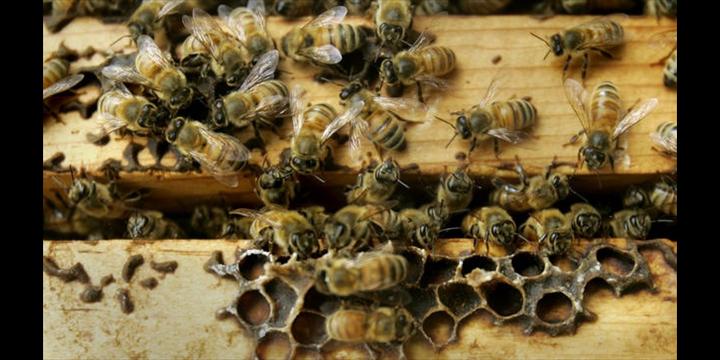MENOMONIE, Wis. - For Jim Burritt, the quiet speaks the loudest.
“I wish you could see these hives when they're really humming,” says the beekeeper. “They're not humming now.”
Burritt begins pulling frames from one of his hives. Frame after frame, no sign of life. Each is loaded with thousands of dead bees.
“These bees were living just literally a few days ago,” he says. “They had to all die at once.”
The past few years, Burritt estimates, winter-kill has claimed 80 percent of Dunn County's bee colonies.
“You feel a real loss,” Burritt says. “It's more than a monetary loss.”
But Burritt is a beekeeper in a position to actually do something about it.
With help from his students, the biology professor at University of Wisconsin-Stout has discovered a bacterium that may be responsible for years of increasing bee winterkill.
“Brand new, this bacterium has never been reported before,” Burritt says. “It's called serratia marcescens strain sicaria.”
Burritt's students drew blood from more than 3,000 honey bees from eight counties in eastern Minnesota and western Wisconsin. The bacterium was present in bees in the half the hives tested.
“We have not confirmed that this bacterium is causing winter kill in bees,” Burritt cautions, “but what we have confirmed is that it is present in very high concentrations in the blood of bees that are sick.”
The decline of honey bees has been well documented, with some fingers pointing at pesticides.
Burritt say his research should be viewed as just one piece of a complex puzzle, with much more work to be done.
Meantime, the quiet from Burritt's hives drives him to keep searching.


